Corfu is an obvious choice for a Mediterranean getaway. It is an island idyll with incredible weather, imposing landscapes, and beautiful shining seas. But the island is so much more than its climate – it is also an island with a long and storied history, making it the perfect place for history lovers to explore. With an airport transfer booked in advance, your cultural holiday can start the moment you leave the airport, as you seek monuments to the events that shaped the island today.
Where is Corfu island?
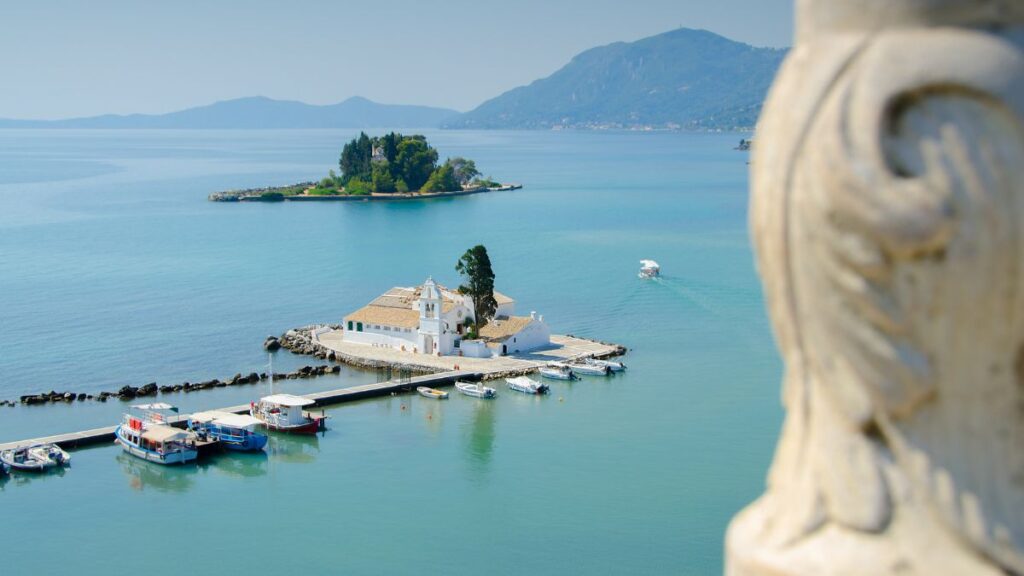
This is a small Greek island in the Ionian Sea. It is the second largest of the Ionian Islands and including its small satellite islands, forms the edge of the northwestern frontier of Greece.
Corfu is the Venetian name of the island, while it is also known as Kerkyra. This island is well known for its beauty, history, and uniqueness in architectural style and music. So this is a must-visit for tourists and everyone alike.
READ MORE: Here’s our list of the 10 best islands to visit around the world
The island’s place in Greek Mythology
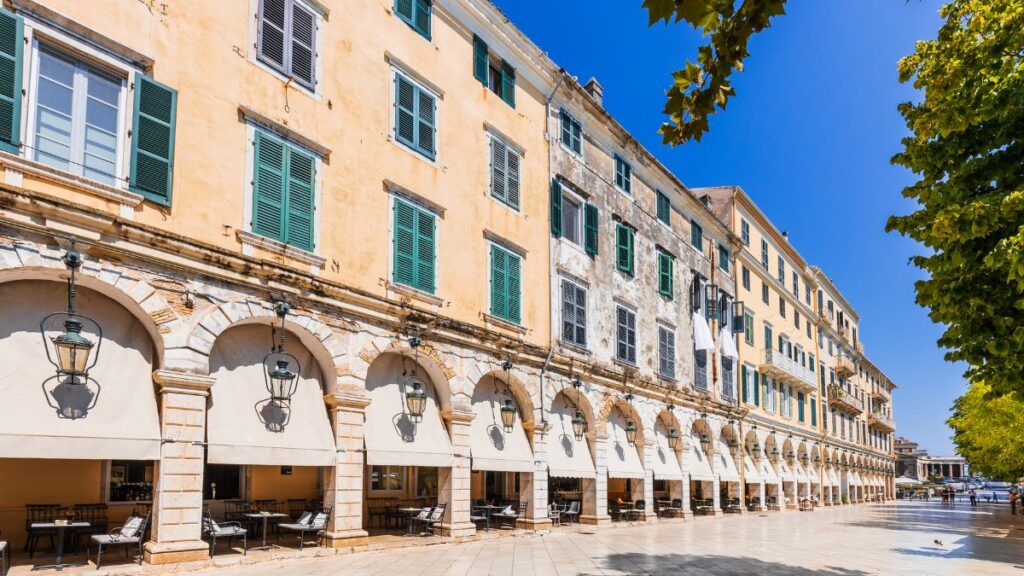
Corfu’s cultural history stretches back to the age of mythology, with the island’s Greek name originating from a Poseidonian tale. The island’s Greek name is Kerkyra, a slight variation on the name Korkyra – itself, the name of a nymph with which Poseidon fell in love.
The story tells of Poseidon’s abduction of Korkyra, and flight to an unnamed island in the Ionian sea. Poseidon named the island in Korkyra’s honour, and there they sired a child called Phaiax, which would become the proper noun for the citizens of Corfu. Corfu is so named today thanks to Byzantine influence, Corfu being a western corruption of Korypho, meaning peaks and referring to Corfu’s fortress installation.
Ancient Greece
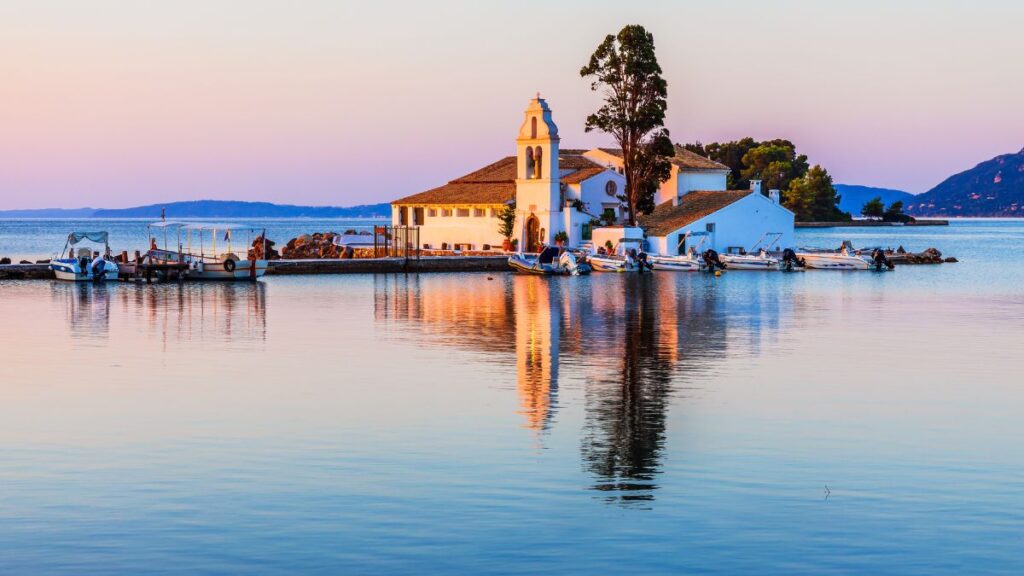
Beyond the mythological origins of the island, it has an incredibly rich and dense history – having been at the core of conflict and culture in Greece since the Palaeolithic era. Before the emigration of Corinthians to the island in the 8th century BC, the island had been populated by immigrants from Eritrea.
Evidence exists of civilisation on the island as far back as 1300BC, but the island’s central part in Greek history began in the 600s BC – with the Peloponnesian War. Corfu was responsible for the first recorded naval battle in the history of Greece, after having sought an alliance with Athens against Corinth.
READ MORE: Here’s why you should visit Greece in August 2022
The Siege of Corfu
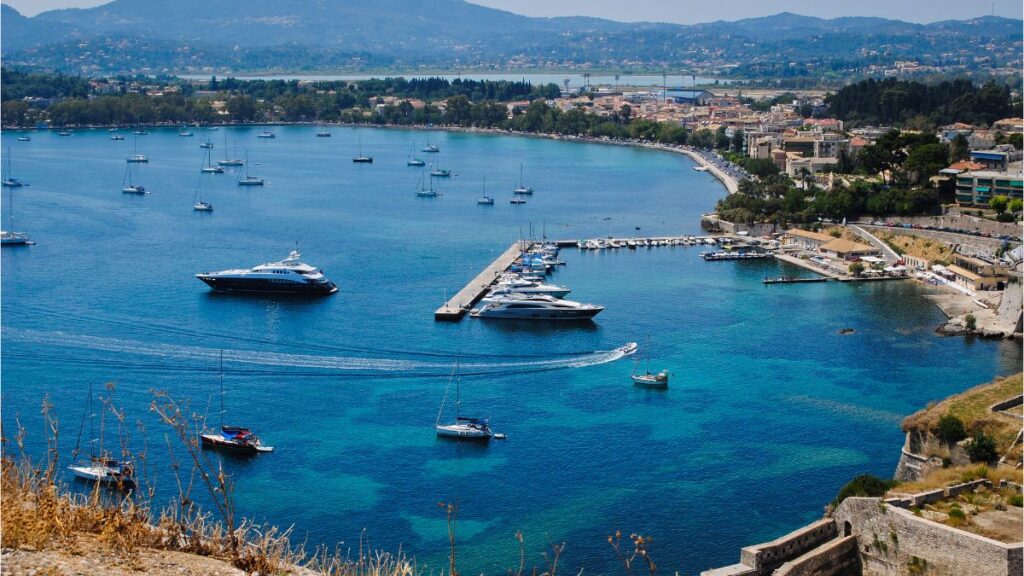
Corfu has been no stranger to conflict since the 7th century BC, but the next great period of war and instability would come during the island’s Venetian rule between the 1500s and the 1700s. The Venetian rivalry with the Ottoman Empire would frequently break out around Corfu, known then as the Door of Venice.
Venetian fortifications rendered attempts at invasion unsuccessful for centuries, with the Old Fortress that circumscribes Corfu’s old town holding fast against Ottoman forces. On two occasions, in 1537 and 1716 respectively, Ottomans held the city of Corfu at siege; both attempts failed, enshrining Corfu in history as a bastion of the Western front.
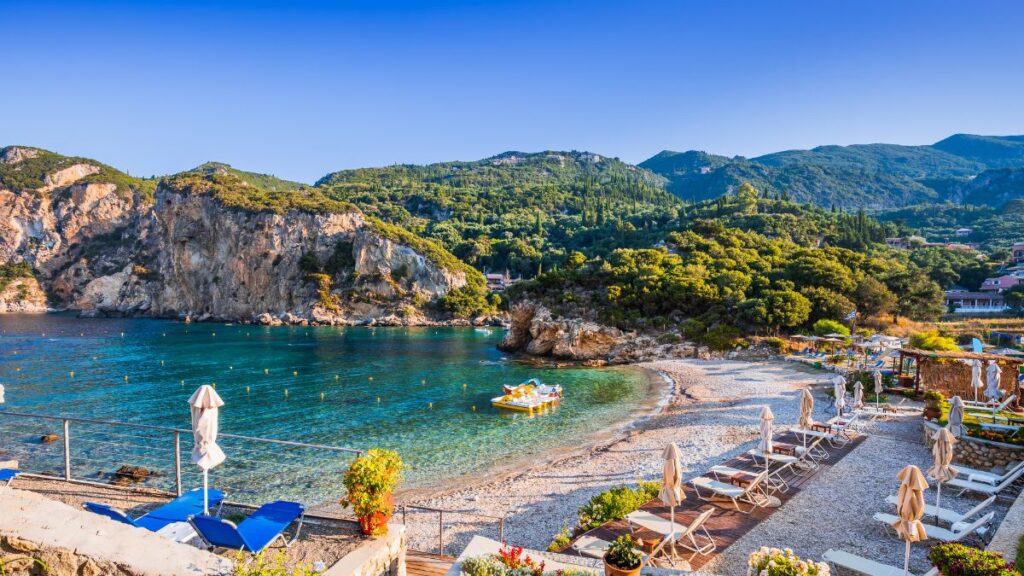
The World Wars In the 20th century, Corfu was once again embroiled in conflict. Its role in the First World War was small, as it extended the safety of its walls to accommodate the Allied Serbian Army. But the Second World War saw the frontlines sweep the island, as the Italian fascists occupied it before its replacement by the Germans in 1943. The result of the Luftwaffe bombings was the destruction of key cultural centres, from the original Parliament buildings to the Ionian Academy.

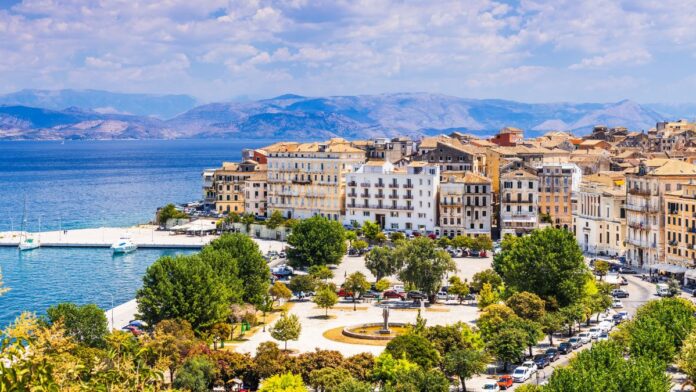
[…] READ MORE: We explore the wonders and history of Corfu Island […]